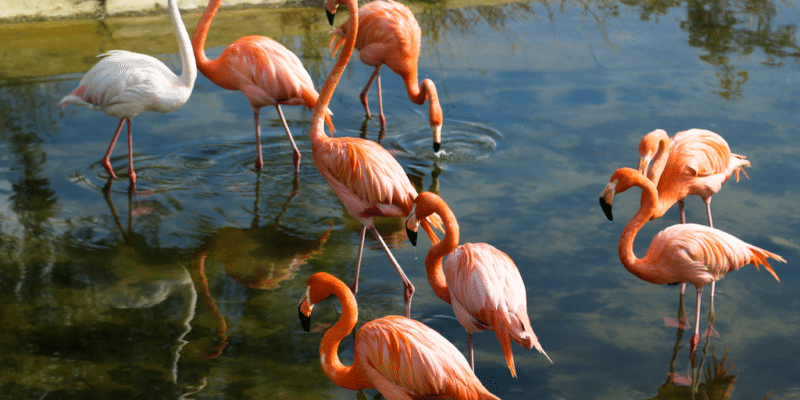In Tunisia, two camps are clashing over the Sijoumi lagoon development project, located in the greater Tunis area. The Tunisian authorities want to deepen the lagoon to solve problems linked to pollution and uncontrolled urban development, while environmentalists fear that the project will cause the disappearance of flamingos.
Will the voice of environmentalists finally be heard on the development of the Sijoumi lagoon in Tunisia? For the moment, nothing is less certain. On the contrary, the Tunisian government is determined to implement its project to rehabilitate the lake as is. The project implemented by the Tunisian Ministry of Equipment and Sustainable Development provides for the deepening of one third of the lagoon, by about one metre. The work is expected to cost 130 million euros.
The lagoon in the greater Tunis area is threatened by pollution and uncontrolled urban development. According to the Tunisian authorities, more than 1.8 million m3 of solid waste have been dumped there since 2009, as well as industrial wastewater. Today, the Sijoumi lagoon, the fourth largest wetland in North Africa and once home to a unique biodiversity, is a shadow of its former self. “We want to prevent its disappearance. This will require strong action to preserve the resource (water, fish, etc.),” says Nadia Gouider, the project director of the Sijoumi lagoon.
A Ramsar-listed area since 2007
But for environmentalists, this project on the Sijoumi lagoon will not only beautify it. The initiative will also deprive the 100,000 birds of food. “Many birds cannot dive to great depths,” explains Hichem Azafzaf, the scientific coordinator of the association Les Amis des oiseaux en Tunisie. Faced with the concern of environmentalists, the Tunisian Ministry of Equipment and Sustainable Development assures that a space will be available for flamingos. This argument can only be verified once the development work on the Sijoumi lagoon is complete.
WWF Tunisia, the branch of the World-Wide Fund for Nature (WWF), is currently exploring solutions to stop the drying up of the Sijoumi lagoon, within the framework of the GEMWET project “Conservation and sustainable development of coastal wetlands with high ecological value”. According to WWF, the salt basin, which has been classified as a Ramsar site since 2007, is drying out rapidly, with the result that the water’s salinity is rising and the automatic irrigation of plants is being impaired, leading to their eventual death.
Inès Magoum







